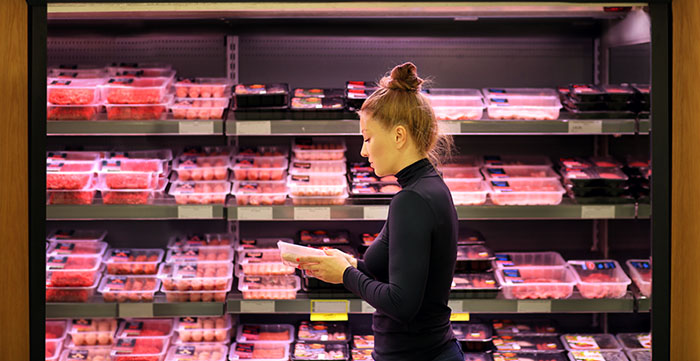The second national lockdown, which begins today, is not expected to have the same dramatic effects as the first one, according to AHDB analyst Duncan Wyatt.
“Panic buying may be less prevalent this time. Consumers have seen the food supply chain operate effectively. British meat performs relatively well in retail, compared to imported meat over indexing in foodservice.
“Food service businesses (pub/restaurants) are more prepared now, and many have found a way of providing delivery/collection services. We begin this lockdown with takeaways in place, unlike in March,” he said
He pointed out that consumer confidence had not yet recovered to pre-COVID 19 levels, so the foodservice market has less volume to lose, although significant disruption is still expected. Similarly, retail volumes are already elevated, and so are expected to increase but by less relative to last time.
“This second lockdown is likely to prolong some of the pain already being felt in the industry – have consumers pushed back their expectations of returning to ‘normal’ where foodservice would function at full capacity and large social events can happen again?
The supply chain is already have been gearing up for Christmas. As a result, there may be less available cold storage than in March to provide flexibility in the event of supply and demand mismatching. With the end of the Transition Period less than two months away, any pre-Brexit stockpiling in the supply chain may also exacerbate this problem.
Mr Wyatt said slaughtering has remained ‘remarkably resilient’ in the face of COVID-19, although, with a number of processors currently reporting problems, processing capacity could be more vulnerable to a second waveand the resultant staffing issues. However, schools are expected to remain open, which could alleviate some staffing pressure compared to the first lockdown.
The impact on pork
Pork demand performed relatively well over the initial lockdown period, with sales of pork/pig meat products up 13% (57kt) in the 24 weeks ending August 9.
However, pig prices have been falling recently, and this is likely to continue, Mr Wyatt added. “Prices continue to be vulnerable to EU oversupply in the wake of African Swine Fever, rather than a second lockdown. Imports would be expected to decline again, as foodservice volumes fall. Again, pork processing capacity generally could be challenged in the event of a second wave, not so much by the second lockdown itself.”
What about Christmas?
It’s too early to say if the lockdown will be extended into Christmas.
“The first lockdown period covered Easter, and lamb in particular underperformed. This is likely to be repeated if the second lockdown extends to Christmas, and would cover all meats, especially roasting joints,” Mr Wyatt said.
“Many planned events, from office parties to concerts and weddings may not take place. However, as they did over the summer, more people would likely remain in the UK over the festive period than usual, potentially boosting consumer demand.”




